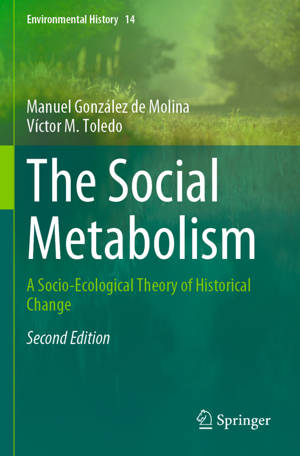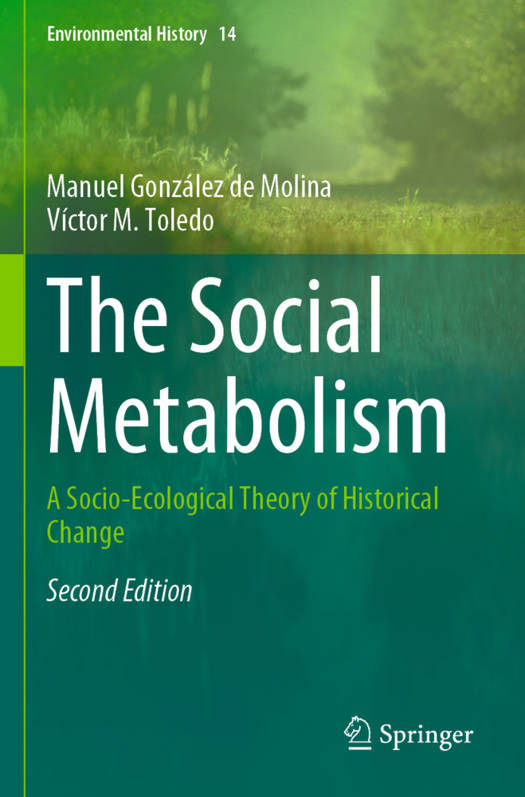
- Afhalen na 1 uur in een winkel met voorraad
- Gratis thuislevering in België vanaf € 30
- Ruim aanbod met 7 miljoen producten
- Afhalen na 1 uur in een winkel met voorraad
- Gratis thuislevering in België vanaf € 30
- Ruim aanbod met 7 miljoen producten
Zoeken
The Social Metabolism
A Socio-Ecological Theory of Historical Change
Manuel González de Molina, Víctor M Toledo
€ 158,45
+ 316 punten
Uitvoering
Omschrijving
This book helps readers to understand the fast growing and timely concept of social metabolism. The authors shed a light on the different existing terms and methodologies that have been developed over the years. Through the study of history, readers will get an understanding of the main currents or schools that exist around this concept and their main findings. Also provides examples of how to apply the metabolic approach at different territorial and temporal scales and using different methodological tools. The book presents a novel socio-metabolic theory of historical change, in which biophysical and social variables are combined in an integrated way to understand the dynamics of socio-metabolic transitions.
In this second edition, the authors provide valuable updates and new sections to each of the previous chapters. New insights on global phenomena like climate change and the environmental crisis are also considered. As readers will learn, a paradigm shift in almost all areas of research and society will be needed to face the challenges created by the modern industrial society. The authors use a look back in history, to explore the relationship between humans and nature from an evolutionary and thermodynamic perspective. With this approach, readers from history, environmental sciences and social sciences will get valuable insights on possible solutions.
In this second edition, the authors provide valuable updates and new sections to each of the previous chapters. New insights on global phenomena like climate change and the environmental crisis are also considered. As readers will learn, a paradigm shift in almost all areas of research and society will be needed to face the challenges created by the modern industrial society. The authors use a look back in history, to explore the relationship between humans and nature from an evolutionary and thermodynamic perspective. With this approach, readers from history, environmental sciences and social sciences will get valuable insights on possible solutions.
Specificaties
Betrokkenen
- Auteur(s):
- Uitgeverij:
Inhoud
- Aantal bladzijden:
- 424
- Taal:
- Engels
- Reeks:
- Reeksnummer:
- nr. 14
Eigenschappen
- Productcode (EAN):
- 9783031484131
- Verschijningsdatum:
- 1/02/2025
- Uitvoering:
- Paperback
- Formaat:
- Trade paperback (VS)
- Afmetingen:
- 155 mm x 235 mm
- Gewicht:
- 663 g

Alleen bij Standaard Boekhandel
+ 316 punten op je klantenkaart van Standaard Boekhandel
Beoordelingen
We publiceren alleen reviews die voldoen aan de voorwaarden voor reviews. Bekijk onze voorwaarden voor reviews.











